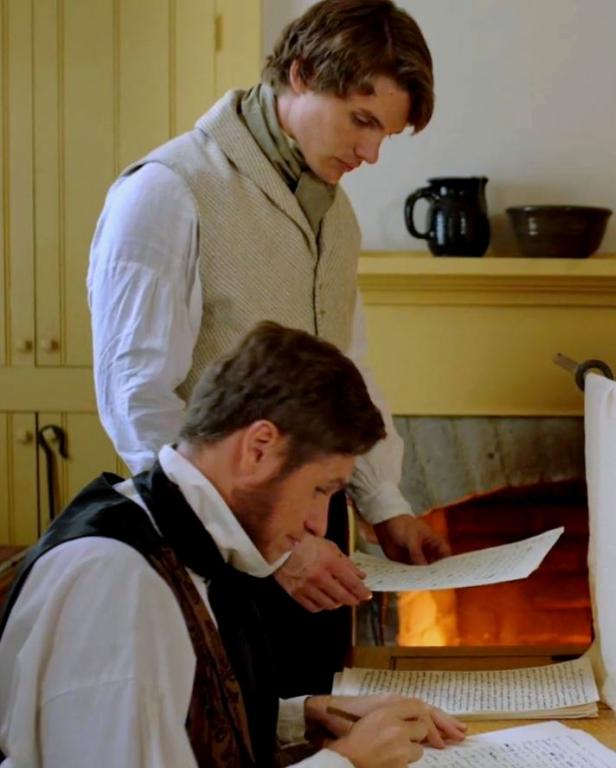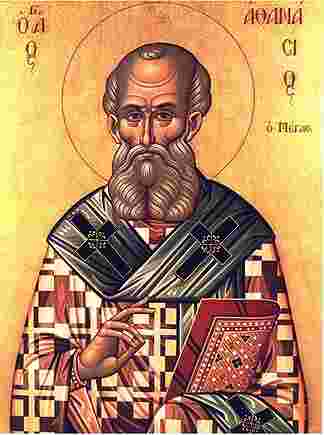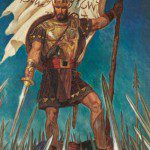Retired federal judge Paul Warner is the featured interview in this latest very short video from the Interpreter Foundation, titled “Testimony of a Judge.” We hope that you will enjoy these short features, which have been drawn from the Interpreter Foundation’s 2022 docudrama Undaunted: Witnesses of the Book of Mormon.
However, not only do we hope that you’ll enjoy them, we hope that you will share them with others. And today, Sunday, is a great day on which to do that. Of course, Monday would also be a great day. As would (now that I think of it) Tuesday. And Wednesday . . .

As I sat in our ward’s Sunday school class today, I suddenly began to marvel at the sheer size of the Book of Mormon — which, according to Royal Skousen, totals 270,002 words
The Old Testament book of Isaiah is 25,608 words long in its original Hebrew text. Jeremiah, the longest book in the entire Bible, is 33,002. No single book in the New Testament even comes close. Between his own gospel and the Acts of the Apostles, which he also wrote, Luke weighs in at a total of 37,932 words. A well-educated physician, he is the most voluminous contributor to the New Testament. By contrast, with all of his many epistles, the apostle Paul (who was also exceptionally well-educated) comes in at second place, with 32,408.
The Torah or Pentateuch — Genesis (32,046), Exodus (25,957), Leviticus (18,852), Numbers (25,048), and Deuteronomy (23,008) — is sometimes known as the Five Books of Moses. Taken altogether, it is at the absolute core of Judaism. And, in their entirety, those five books reach the impressive sum of 124,911 words. But that’s substantially less than half the word count of the Book of Mormon.
So far as I’m aware, therefore, the Book of Mormon stands as the single largest purportedly revealed text in the Abrahamic tradition, and it does so by a considerable margin. If one adds into the mix the Doctrine and Covenants and the Pearl of Great Price — which, at a hasty glance, represent respectively about 125,000 words and around 25,000 words, it becomes clear (based on an approximate total of 420,000 words, and unless there’s a competitor of whom I’m unaware) that Joseph Smith is by far the single most prolific contributor of purportedly scriptural text within any significant strand of the Judeo-Christian or Islamic religious tradition. He’s actually not very far behind the entire Old Testament, which (at least according to one count) comes to 503,493 — and which was written over the span of well over a thousand years.
I’ve said nothing at all here about the richness and complexity of the Book of Mormon, on which I could say a very great deal. And I’ve said nothing about the witnesses to the Book of Mormon, whose testimonies stand squarely in the path of anybody who hopes to write the book off as nothing more than the product of Joseph Smith’s purely subjective imagination.
I simply pose the question of why, if Joseph set out to pretend to prophethood, he chose to go to the enormous effort of creating such a massive work. Nobody else in the entire Abrahamic tradition of whom I’m aware, perhaps (though I can’t think of any) with the possible exception of one or two obscure actors who have plainly sought to create something in explicit imitation of Joseph Smith, has done anything of comparable magnitude.
Some dismiss Joseph as if the Book of Mormon were merely something that one casually “tosses off” in a passing, dramatic, whimsical pseudo-prophetic gesture. It is not. The highly educated but unbelieving Fawn Brodie said that his imagination simply “overflowed like a spring freshet.” I wonder, though, how many years she required to write her biography of him.
Of course, its sheer length doesn’t prove the Book of Mormon true. But its length does strongly suggest that it shouldn’t merely be brushed dismissively aside.

A new bishopric was announced for our ward this morning. The new bishop — whom I would guess to be in his mid-forties — lives across the street from us but has been in the ward only a relatively short time and (partly because we travel so much, and partly because I’m such an anti-social and unpleasant person) I don’t know him well. I was already aware that he’s a physician and that his wife is an attorney, but I looked him up — and I found an impressive academic background: He is a specialist in neonatology who earned his medical degree at the University of Chicago and followed that up with a residency in pediatrics at the Dartmouth Hitchcock Medical Center in Vermont and a fellowship and a Master’s in Public Health at the University of Washington. I also learned from his remarks today that he served as a missionary under my former Brigham Young University colleague Don Jarvis, which means that he speaks Russian.
We have interesting neighbors.
The new first counselor in our bishopric is Ryan Knowlton, whom I feel free to mention here by name because he’s already publicly associated with me and my evil deeds: A professional designer by trade, he’s worked with us on the publicity for our films Witnesses and Undaunted: Witnesses of the Book of Mormon — he even has a small speaking role in Undaunted — and has again been working with us toward the release of Six Days in August on 10 October 2024.
The new second counselor is another relatively recent addition to our ward. He is also our next-door neighbor, which is likely to blacken his name so sufficiently in the minds of some that I feel it unnecessary to add anything more. Instead, I follow my longstanding policy of not subjecting otherwise innocent people to the tenderly slanderous mercies of my most obsessive online critics. I won’t identify people whose only offense is having come into contact with me.












